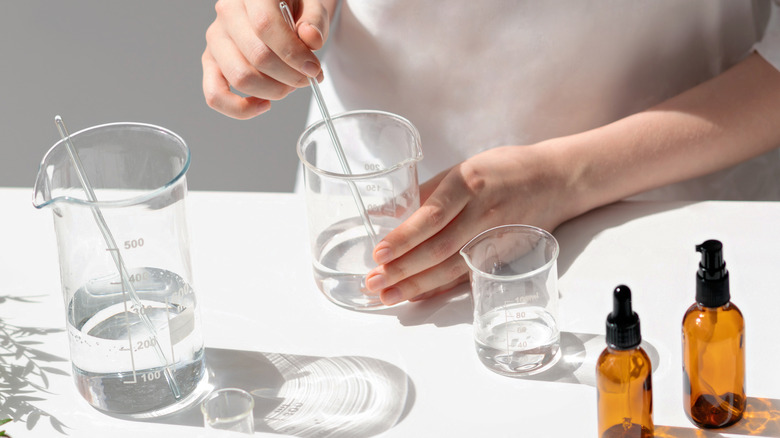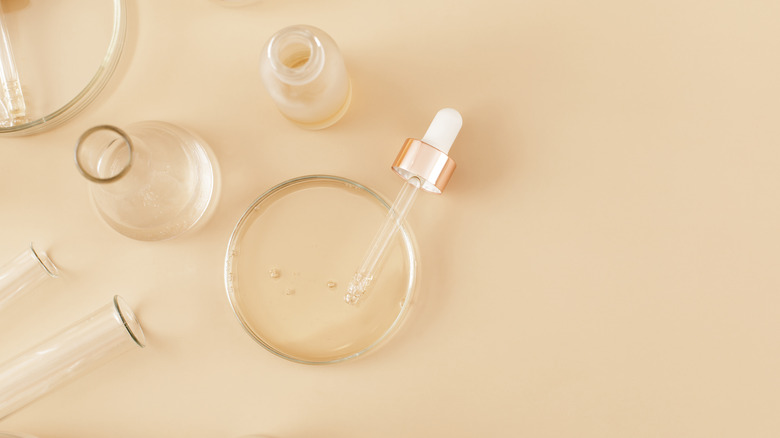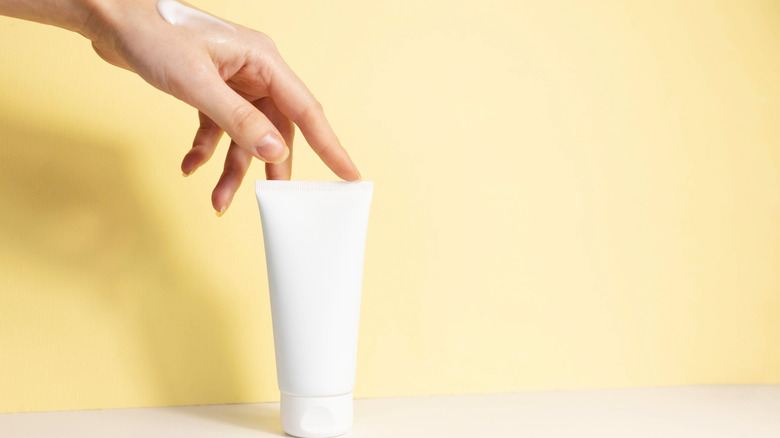Why This Previously Banished Skincare Ingredient Is Making A Comeback
Imagine the distress experienced by beauty lovers when they found out that Olaplex No. 3 Hair Perfector has an ingredient that may cause infertility. Thankfully, it was soon discovered that the new and improved Olaplex didn't contain the ingredient butylphenyl methylpropional (known as lilial) anymore, per Allure. In fact, before the chaos, Olaplex's chief scientist Lavinia Popescu had already shared on Instagram that the formula had been updated.
Beauty products get discontinued or updated for many reasons. It could be a lack of popularity or even necessary for legal reasons (via Bustle). Colorescience UK's lead product developer and skincare specialist Patricia Boland told the outlet, "[it] may mean that the product needs to be reformulated, but it could remain the same in another country."
When a country bans an ingredient and deems it harmful for use based on research findings, it is the brand's responsibility to remove the ingredient from their products in a particular country, but the number of banned ingredients varies from one country to another. The number of banned/restricted chemicals in the European Union crosses 1,300, but only 11 in the U.S. (via The Guardian). There was a time when folks were worried about a common food additive known as propylene glycol. People were wary of this very scientific-sounding chemical's effect on humans, but in reality, the U.S. Food and Drug Administration (FDA) has categorized it under a "Generally Recognized as Safe" ingredient.
What is propylene glycol?
According to Healthline, propylene glycol is a syrupy liquid that is thicker than water. It is odorless, colorless, and often used in food and drinks to add a little oomph of flavor or as a preservative. It was initially derived from petroleum products by using fossil fuels, which isn't great for the environment, but now they can make synthetic propylene glycol from sugar cane, vegetable oils, and corn, per Mind Body Green.
This version of propylene glycol is definitely the way to go. Clean cosmetic chemist Krupa Koestline told the outlet, "It has all the great properties of its petroleum-derived cousin, as well as preservative-boosting capabilities that are great in any formulation." This clear liquid is used as a solvent and is also a great humectant. Propylene glycol, specially made for skincare products, is used in creams and serums (via Byrdie). However, the one derived from petroleum is not.
Skincare benefits of propylene glycol
The synthetic version of propylene glycol is also commonly used in many skincare products because of its amazing benefits. Though the name sounds very scientific, it is not bad for your skin unless you have extremely sensitive skin and are prone to allergies. Since it is a humectant, it attracts and holds on to moisture on your skin, so it is a great ingredient to hydrate dry skin, per Byrdie.
This liquid is also an emollient and helps soften and smooth your skin by evening out your skin texture (via Mind Body Green). According to Healthline, this hydrating ingredient can make other ingredients more efficient at their job. While propylene glycol is often used in skincare products and is not banned anywhere, you must remember that it may cause a reaction because, in 2018, it was included under Allergen of the Year by the American Contact Dermatitis Society.
Board-certified dermatologist Joshua Zeichner told Byrdie, "Based on what we know today and based on years of use in cosmetic products, propylene glycol is a safe ingredient to use, provided that you do not have an allergy to it." When in doubt, it is always safe and smart to use a small patch test to see if your skin will react to it negatively.


